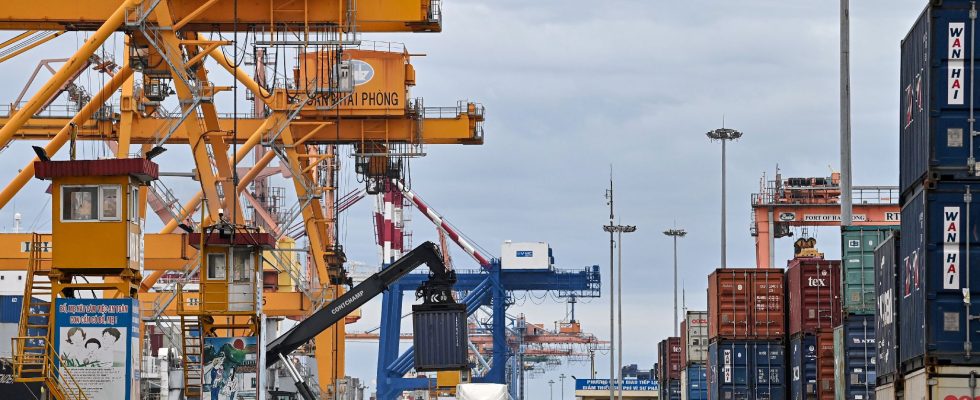It’s a 212 page report written by the World Trade Organization (WTO). In its annual document on world trade, the international organization notes an increase in trade tensions, including a sharp increase in trade concerns raised by member countries before various committees.
Thus, notes the WTO, the Council for Trade in Goods – a body responsible for overseeing the implementation of all WTO agreements concerning trade in goods – “has seen an increasing number” of concerns raised by 164 member countries of the organization, reaching a record 45 disputes brought at its November 2022 meeting. The number of trade disputes raised has more than doubled since 2019 and increased nine-fold between 2015 and 2022.
In 2022, 23 new trade concerns were also raised by WTO members at the Council for Trade in Goods, three more than in 2021, the previous record. China (4), Indonesia (4) and Peru (3) are the states with the greatest number of new trade concerns raised.
Unilateral environmental measures
Many of the disputes concerned environmental measures, notes the WTO. Among them, the WTO cites in particular the restrictions on the export of raw materials from Indonesia or the carbon adjustment mechanism at the EU borders, known as the carbon border tax.
As noted The echoes, problematic cases raised within the Sanitary and Phytosanitary Measures committee have also seen a sharp increase since 2020. As have the conflicts analyzed within the Technical Barriers to Trade committee. Conflicts over market access are also growing exponentially: their number more than doubled between 2020 and 2022 and quadrupled between 2015 and 2022.
Towards a “deglobalization” of world trade?
In its annual report, the WTO also warns of the “first signs” of the “deglobalization” of world trade. The “deglobalization” of international trade is far from being a reality but “the first signs of trade fragmentation threaten to slow down growth and development”, estimate WTO economists.
Historically advocated by anti-globalization movements, the idea of “deglobalization” has returned to the forefront in the face of the profound disorganization of production chains linked to the war in Ukraine and the confinements in China linked to the Covid-19 pandemic. . In the annual report, economists from the World Trade Organization plead in favor of “reglobalization”.
For several decades, the expansion of international trade has outpaced global GDP growth, but “this trend sort of stopped around the time of the global financial crisis of 2008-2009 and has been stagnant since then,” he said. explained the chief economist of the WTO, Ralph Ossa, in an interview with AFP.
The impact of geopolitical tensions
After this phase of slowdown in globalization, the question is “whether we are heading towards a phase of deglobalization,” he said. The WTO report shows that geopolitical tensions are starting to impact trade flows around the world. “We are still far from deglobalization, but we are starting to see the first cracks in the system,” assured Ralph Ossa.
The WTO has thus carried out calculations which show that since the war in Ukraine, trade between the world’s two major geopolitical blocs – which the organization identified on the basis of countries’ votes at the UN General Assembly – experienced a growth rate that is on average 4 to 6% lower than that of trade within these blocs.
“We are really at a crossroads. And either we try to re-enter the path of globalization, or we will continue on this path of fragmentation,” observed another WTO economist, Victor Stolzenburg, who coordinated The report.
